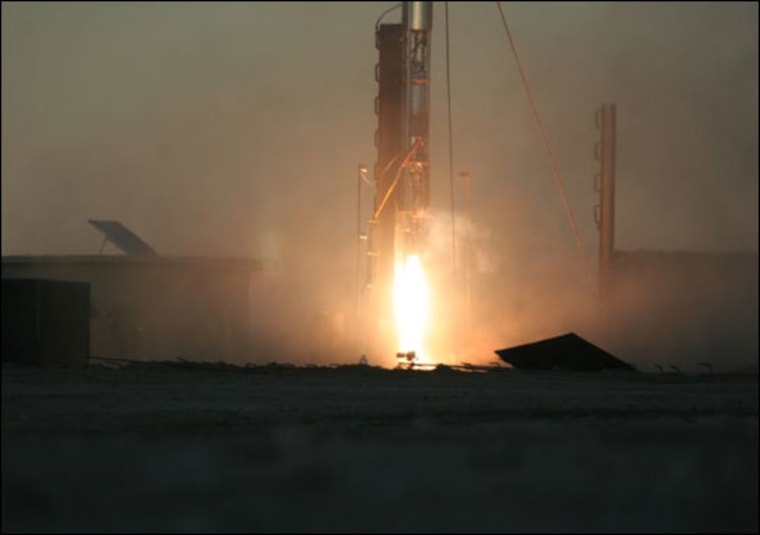The U.S. aerospace industry is officially onboard the biofuel bandwagon, with the test fire of a small rocket engine that burns commercially available biodiesel.
California-based Flometrics did the honors and discovered the Rocketdyne LR-101 engine produced nearly the same amount of thrust burning biodiesel as it did chugging through a kerosene-based conventional rocket fuel.
"We found it was very comparable," said company chief executive Steve Harrington.
Flometrics is now assembling components for an actual launch, targeted for later this month. Harrington is hoping the demonstration will spark interest in renewable fuels from NASA and the Air Force.
"You have to start somewhere," Harrington told Discovery News. "If you can get something started using renewable energy sources, you'll have some options instead of just one day running out of oil."
For the test, which took place last month in the Mojave Desert, Flometrics engineers first filled the rocket with traditional RP-1 rocket fuel and liquid oxygen, then fired the engine for about six seconds until pressure readings stabilized.
They repeated the test with biodiesel in the fuel tank and found just a four percent drop in engine performance. Harrington would like to run additional tests with different blends of fuel and oxidizer to see if engine performance can be improved.
"More testing at various mixture ratios would show if the (engine performance) difference is less at other ratios," the company wrote in a blog about the test firing.
Aside from replacing fossil fuels with a renewable energy source, biofuel rockets may be able to deliver more bang for the buck. The biofuel is denser than traditional rocket fuel so more fits inside the tank.
Harrington also suspects biofuel burns a little cleaner, though the engine was not instrumented with sensors during last month's demonstration so no specific measurements were made.
"We'd love to do all kinds of fancy measurements," Harrington said. "But we didn't have the money for that."
Biodiesel is becoming increasingly more common as an automobile fuel. Last year, alternative fuels powered the Earthrace speed boat during its around-the-world cruise. More recently, Continental Airlines used one of its commercial jets for a biofuel-driven demonstration flight.
"It's kind of the sexy thing to do right now," said Laurence Fineberg, a rocket propulsion engineer with NASA's Kennedy Space Center in Florida.
